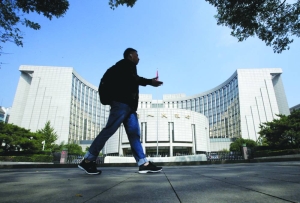Easing inflation to lift Egypt’s GDP growth to 4.2%

The Central Bank of Egypt (CBE) may start monetary easing by February 2025, slashing interest rates by 12 per cent, according to a BMI researched note.
The CBE’s Monetary Policy Committee (MPC) is expected to keep rates steady in its three meetings in the fourth quarter (Q4) of 2024. The MPC is scheduled to meet three times in Q4: on October 17, November 21 and December 26.
Inflation will fall to below 20 per cent by February 2025 thanks to significant base effects, prompting the authorities to start their monetary policy easing cycle either immediately before or after February.
“We see scope for the CBE to cut by 1,200 basis points in 2025 as key central banks would also be in easing cycles,” read a report by market research firm BMI, an arm of Fitch Solutions.
However, inflation will remain sticky at around 28 per cent in the second half (H2) of 2024, according to the BMI report, which expects it to cool down to an average of 18.1 per cent in2025.
“In the second quarter of fiscal year 2023/24, private consumption grew by 13.2 per cent, year-on-year, and we think that it remained strong in Q3,” read the BMI report.Egypt’s fiscal year begins on July 1.
Inflation generally leads to rising prices, reducing the purchasing power of consumers, increasing the cost of living, and creating uncertainty for businesses. However, lower inflation means more stable prices, which boosts consumer confidence and increases purchasing power. For businesses, easing inflation reduces uncertainty, lowers costs, and encourages investment and long-term planning.
Easing inflation in the most populous Arab country will help its economy by stabilizing prices, enhancing consumer purchasing power, encouraging foreign and domestic investment, and reducing the strain on government finances.
Economic growth
Easing inflation will make the economic environment more predictable, allowing businesses to plan better and grow, while also easing the cost of living for citizens. Furthermore, it will help protect the currency and improve Egypt’s attractiveness to foreign investors, fostering long-term economic stability and growth.
By all means, Egypt’s economic recovery has been on the rise given that growth bottomed out at 2.2 per cent in Q3FY2023/24, according to BMI data.
“We maintain our view that economic growth will pick up to 4.2 per cent in FY2024/25, driven by higher investment, a recovery in the manufacturing sector and the expected end of the Gaza war by the end of 2024,” the BMI report forecast.
Capital formation
BMI expects moderate growth in fixed capital formation in Egypt over the coming few years.
“However, we believe that the authorities’ recent efforts to improve the business environment and increase the private sector’s participation in the economy will help attract foreign investment outside of the hydrocarbon sector,” said the BMI report.
BMI forecast more than $25billion in investment pledges by the United Arab Emirates, Saudi Arabia and Qatar (made in March 2022) to materialise over the coming few years, partly offsetting the slowdown in public investment.
“Overall, we believe that capital formation will be a key driver of growth in Egypt over the next decade, second only to private consumption,” it said.





